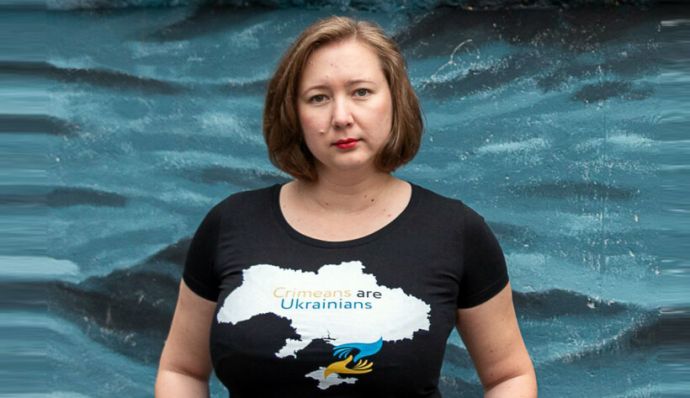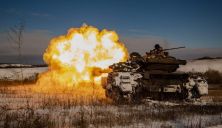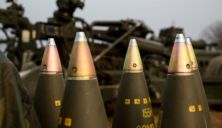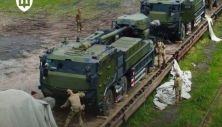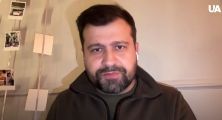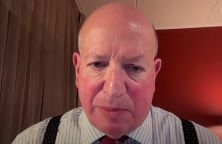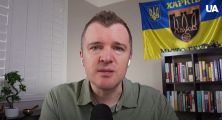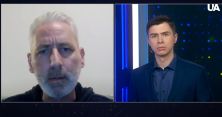Violation of human rights and persecution of activists in Crimea. How Russia takes revenge on the participants of the Crimean Platform and how the Russian Federation can be forced to answer for its actions on the peninsula. We discuss these topics on the air of the FREEDOM marathon on the UA TV channel with the head of the Crimean Human Rights Group Olga Skrypnyk.
The situation in Crimea worsened after the occupation of the peninsula by the Russians:
“There have been instances of oppression of human rights. Today the situation has worsened. First, the number of repressions has increased. Secondly, “mobilization” was added to this – forced conscription into the army. And this time, these conscripts are sent to the war against Ukraine.
The situation has also become worse for the Crimean Tatars. The persecution of the Crimean Tatars was on the territory of the peninsula until February. Today it is also happening in the occupied cities and villages of the Kherson or Zaporizhia regions. The FSB and the National Guard conduct searches, detain people on suspicion of allegedly participating in the Crimean Tatar battalion, torture them and then transport them to a pre-trial detention center in Simferopol.”
The expert explained how civilians can protect themself in such a situation:
“The only chance and mechanism that exists for the Crimean Tatars and all residents of Crimea today are the Armed Forces of Ukraine. This is not only my patriotic position. This is the reality. After all, unfortunately, all other mechanisms for 8 years have not helped to liberate Crimea and restore justice.
Today we are at the stage of a full-scale war, so the liberation of Crimea is also being considered by military means, which is logical.”
“Nowadays, at least 127 of our citizens are behind bars: either in the Simferopol pre-trial detention center, or taken to the territory of the Russian Federation on trumped-up cases.”
Skrypnyk spoke about the role of the Crimean platform in this problem:
“No matter how Russia tries to ignore the Crimean Platform, this process has been launched and is working.
Moreover, the second summit of the Crimean Platform took place in an online format due to the issue of security. And the number of participants in the Crimean Platform has increased, no matter how Russia tries to contradict it.
Russia only increased the number of supporters of the de-occupation of Crimea.
If last year there were 46 countries and Ukraine on the Crimean platform, then at the second summit there were more than 60 countries.
This is the only international format that has officially signed a declaration that the goal of the Crimean Platform is precisely the de-occupation of Crimea. Therefore, the Crimean peninsula will be de-occupied.”
The expert is convinced of the effectiveness of the sanctions imposed on Russia:
“Today, to stop the full-scale aggression of Russia and restore the ability to defend human rights, it is necessary to weaken Russia as much as possible.
Russia may deny that the sanctions are affecting it, but this is not the case. They just don’t have as quick an effect as we’d like.
Russia is depleted economically, financially, and resources are running out. The steps to completely stop the trade in gas and oil with Russia are important. This is the step that has not yet been taken to the end, both for objective and not always objective reasons.”
On August 23, the second summit of the Crimean Platform took place. For security reasons, the event was held online. This is the first major international negotiating platform for Ukraine on the de-occupation of Crimea.
Last year, the founding summit in Kyiv brought together representatives from all NATO and EU countries, which caused great irritation in Russia.
This year, the Crimean Platform brought together even more participants who condemned the annexation of the peninsula and supported Ukraine in resisting Russian aggression. Representatives of more than 60 countries joined the second summit, including 40 presidents and prime ministers, including Polish President Andrzej Duda (who personally arrived in Kyiv), British Prime Minister Boris Johnson, Canadian Prime Minister Justin Trudeau, as well as US Secretary of State Anthony Blinken and NATO Secretary General Jens Stoltenberg.

